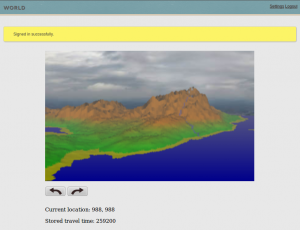Back From The Dead
I honestly don’t know what week we’re on for So Play We All, I’ve missed a weekly update for the first time. Well, for the first three times in a row. Each time I decided not to work on Oaqn in favor of bigger, more stressful things going on in my life. Which is to say: I’m not going to make an excuse, I’m just going to pick it back up and make more progress.
As a side note, we’ve tinkered with rules since my last update. When we miss a week we’re allowed to bank that time for later use (which I think was three instances of 2-6 hours, but I’ll have to check). I hope to use up that time in the next week or two, but we’ll see what my availability is. First I’ll have to get my Oaqn hours done more than 24h before the deadline, which I’ve only managed the very first week of SPWA.
Another rule change is that we’re going to do our responses to each others’ updates in our next update rather than as a separate post, so those will start appearing here rather than on on my personal blog. Finally, we’re going to indicate our availability for hours at the bottom of each post rather than try to remember to coordinate emails to plan – not a huge deal, but I mention it for anyone wondering why I’ll keep closing with it.
Responses
Jim has been doing more plumbing. and also more plumbing. The visible effects of his changes are that his game now renders
Welcome Guest!
…instead of the previous placeholder text. The neat thing is that it’s actually touching a User model from the database. The less neat thing is that he’s still way down in low-level code, trying to sort out how data flows from the database to the screen. Some of the stuff about Drupal’s views in his second update sounds like Django’s generic templates and template inheritance, but otherwise there’s nothing much to say about plumbing.
Luke has also had trouble hitting updates, I think his exposition post is the only one for me to respond to. It’s not mentioned in the post, but I see some changes in his game. You draw cards, pick where you want to go, and can gain skill points to level up your cards. Interesting to consider cards that aren’t fungible resources, they can be individually improved. There’s some bugs, though, after clicking around a while I just get server errors.
Progress
And speaking of errors gives me a good transition to talk about my progress for this week. I spent half of my time on Oaqn chasing down a very painful bug. When loading a player record that lazily updated an attribute, I was losing the time of the last update. No exceptions or anything, I just always got the current time when I asked when the last update was, no mattter that I could see it in the database. Ah well, it works now. I’ve sharpened my bug-hunting skills and added to my test suite.
I’ve made some minor tweaks. If you’re logged in, you won’t see the generic front page of Oaqn that tries to get you to sign up, you’ll go right to viewing the world from your current position.
I’ve added the display of stored travel time (that’s what exposed the big bug) and a navigation bar showing which aspect of the game you’re looking at. The next item to come will let you make travel plans. I feel a bit like I’m repeating the last two updates by saying that’s the next thing to come, but I’m continuing my steady progress towards that interactivity.
This week, I’m good for up to six hours, everything’s finally planned and quiet in my life. If we only do 2-3 hours, though, I’m publicly committing to a second update from my banked hours.
If you’re glad to see Oaqn rolling again and showing live, up-to-the-second player data, please vote for it in this week’s poll. No poll this week, I was the only one to complete my hours.

